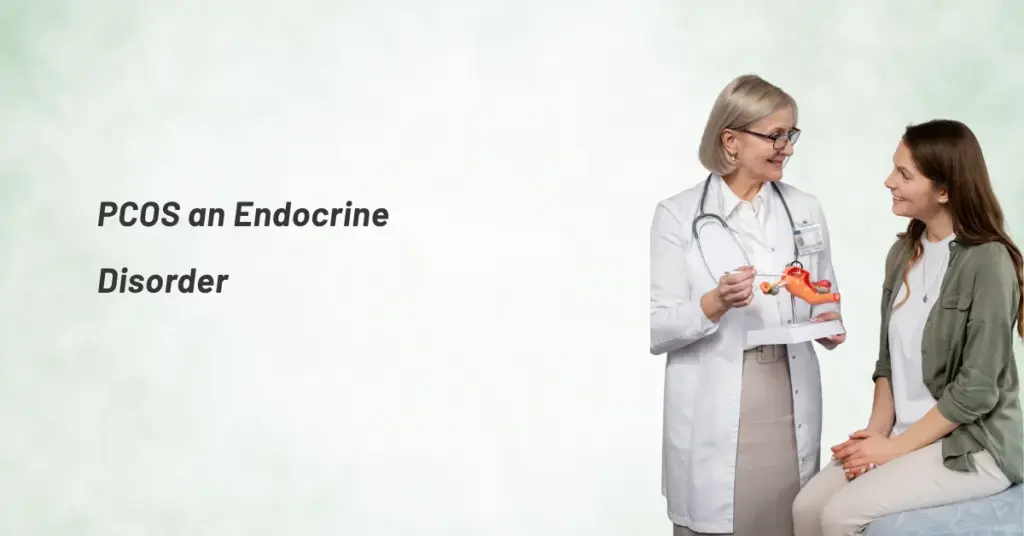Polycystic Ovary Syndrome (PCOS) is one of the most common conditions affecting women of reproductive age. But many still wonder — is PCOS an endocrine disorder? The answer is yes. PCOS is a disorder of the endocrine system, which regulates hormones throughout the body. Let’s explore the hormonal connection and why it matters for women living with PCOS.
The Endocrine System and PCOS
The endocrine system is responsible for producing and balancing hormones that control many bodily functions, including metabolism, reproduction, and mood. In PCOS, this system is disrupted, leading to hormonal imbalance in PCOS. This imbalance affects the ovaries, causing irregular periods, excessive androgens (male hormones), and often small cysts on the ovaries.
So when people ask, is PCOS an endocrine disorder, it’s because the root cause lies in how hormones are produced and regulated.
PCOS and Hormones: What Goes Wrong?
Women with PCOS often have elevated levels of androgens, which can lead to symptoms like acne, hair thinning on the scalp, and excess hair growth on the face or body. Insulin resistance — when the body doesn’t respond properly to insulin — is another hallmark of PCOS. This adds to the hormonal chaos and can increase the risk of type 2 diabetes.
Understanding the link between PCOS and hormones is key to managing the condition effectively.
Causes of PCOS: More Than Just Genetics
The exact causes of PCOS aren’t fully understood, but it’s thought to be influenced by a mix of genetic, environmental, and lifestyle factors. Family history, obesity, and insulin resistance can all increase the risk. Since PCOS stems from hormonal and metabolic dysfunction, it’s classified as an endocrine disorder.
Managing PCOS Through Hormonal Balance
Because PCOS is a disorder of the endocrine system, treatment often focuses on restoring hormonal balance. This can include:
- Lifestyle changes: Healthy eating and regular exercise
- Medications to regulate periods and lower androgens
- Managing insulin resistance with diet or medication
By addressing the underlying hormonal imbalance in PCOS, many women can improve symptoms and lower their risk of long-term complications.
Final Thoughts
So, is PCOS an endocrine disorder? Absolutely. PCOS is a complex condition rooted in hormonal imbalance and dysfunction of the endocrine system. Understanding this connection empowers women to seek appropriate care and make informed decisions about their health. If you suspect PCOS or are struggling with symptoms, speak with a healthcare provider about how to manage your hormones and improve your quality of life.


